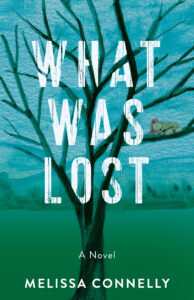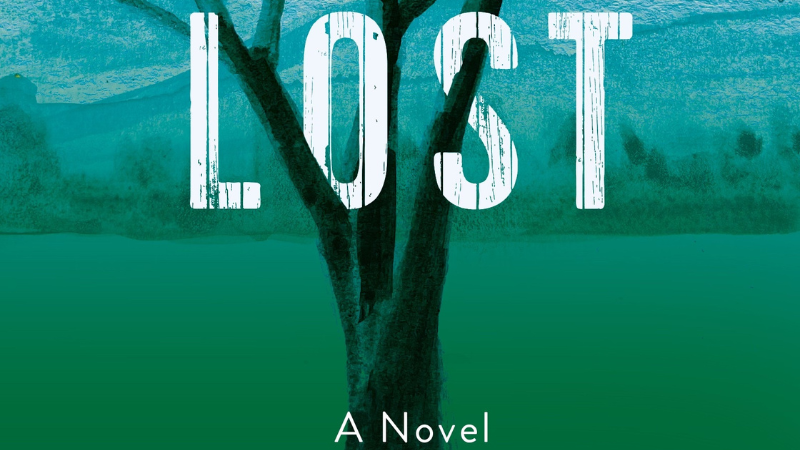Debut author pens empowering story of one woman’s journey to catharsis
 Brooklyn, NY – A woman returns to her hometown to uncover the truth and confront the perpetrator of the childhood sexual abuse she endured 30 years earlier in Melissa Connelly’s gripping debut novel, “What Was Lost” (October 8, 2024, She Writes Press). Kirkus Reviews calls it “a vivid examination of how troubles from the past affect an unfolding future.”
Brooklyn, NY – A woman returns to her hometown to uncover the truth and confront the perpetrator of the childhood sexual abuse she endured 30 years earlier in Melissa Connelly’s gripping debut novel, “What Was Lost” (October 8, 2024, She Writes Press). Kirkus Reviews calls it “a vivid examination of how troubles from the past affect an unfolding future.”
Melissa Connelly’s debut novel comes after a long career in education. A finalist for the 2019 Montana Prize and at 60, she’s ready to share her first novel; a story about a 40-year-old woman who returns to her old hometown in Vermont and faces the past she was so desperate to forget.
In a world before Roe v. Wade, young Marti is fourteen and pregnant by her 27-year-old art teacher. In desperation, she looks for ways to abort the baby. With the help of her friend, Peter, she hitchhikes across state borders to seek the procedure out. Soon after the abortion, she runs away. Thirty years later, Mari is confronted with disturbing memories from her past and returns for the first time to her small Vermont hometown. She drags along her unwitting and unwilling teenage daughter, heightening the tension between them. Encountering her old friend Peter she learns how the lies she told impacted his life. Together they concoct a plan to find her abuser. Marti is seeking forgiveness for lies told, and revenge for secrets held.
Exploring the vast social change from 1970 to 2000, What Was Lost unfolds in times before language such as #MeToo helped give voice to these all-too-common occurrences. It is a raw, powerful tale of one woman confronting the ghosts of her past. Publisher’s Weekly says “a strong sense of humanity and compassion powers the novel.
“What Was Lost”
Melissa Connelly | October 8, 2024
She Writes Press | Literary Fiction
Paperback | 978-1647427849 | $17.99
Ebook | B0D3FKK4SQ | $12.99
 Melissa Connelly dropped out of high school at age fifteen. Despite this, she went on to receive a BSN in nursing, an MA in special education, and an MFA in creative writing. She’s had a long career working with children in various roles in schools, hospitals, psychiatric clinics, and daycares. Her work has been published in American Heritage Magazine, Ruminate Magazine and the anthology It’s All About Shoes, and she was a finalist for the 2019 Montana Prize. Connelly has a home in the mountains of Western North Carolina but lives most of the year in Brooklyn, New York. Find out more: https://melissaconnelly.com/
Melissa Connelly dropped out of high school at age fifteen. Despite this, she went on to receive a BSN in nursing, an MA in special education, and an MFA in creative writing. She’s had a long career working with children in various roles in schools, hospitals, psychiatric clinics, and daycares. Her work has been published in American Heritage Magazine, Ruminate Magazine and the anthology It’s All About Shoes, and she was a finalist for the 2019 Montana Prize. Connelly has a home in the mountains of Western North Carolina but lives most of the year in Brooklyn, New York. Find out more: https://melissaconnelly.com/
Follow Melissa Connelly on social media:
Website: https://melissaconnelly.com Facebook: @melissaconnellywriter | Instagram: @melissaconnellywriter
In an interview, Melissa Connelly can discuss:
- How she uses multiple timelines to show the social changes between 1970s and 2000s
- How she came about writing Marti’s story of childhood sexual trauma and the help she receives to overcome her past demons
- Why her fictionalized story is an all too common occurrence in real life and how it helps bring light to those who can’t speak up
- How the alienation of childhood grooming and sexual abuse pushes Marti away from her friends and family
- How Marti’s inability to connect with her teenage daughter stems from her past trauma fracturing their mother/daughter relationship
- How she’s publishing her first novel in her 60s and the inspiration to become an author
An Interview with Melissa Connelly
1. What inspired you to write and share Marti’s story? Do you know people who may have experienced similar circumstances?
When I originally came up with the idea, I thought it was almost exactly what had happened to someone I knew when I was 16. I’d lost touch with this friend but while I was near the end of writing the novel, out of the blue I heard from her. However, I had the details of her story all wrong. So in fact, I did create the story. That said, I’ve known many people who experienced sexual abuse and I’ve dealt with it professionally as a child psychiatric therapist.
2. Part of the book is set in a world where abortion wasn’t readily available everywhere. What did you want to convey by setting the story in the 1970s?
I completed the book before Roe v Wade was overturned. I wanted to show how hard it was before Roe. Now, of course, I feel it’s even more relevant. It could easily be set today.
3. How do you believe this novel resonates with current social movements, like #MeToo?
The shaming that victims feel goes very deep. It’s why I say she felt “complicit” in her abuse. I grew up in a time where these things were never discussed— even among people going through it or people who knew about it. So the more light that is shed, the better. (Please answer in 2-5 sentences. If this is an area you can expand upon more fully, let me know as that may be a good guest article topic for you)
4. Aside from Marti’s reconciliation with her past, there’s also an underlying theme of mother/daughter relationships. Why was it important to include Marti’s relationship with her daughter Tess?
Tess’s adolescence is the catalyst for Marti’s awakening memories. She’s terrified for Tess. And like all parents, Marti parents either as she was parented, or as a reaction to it. Each generation makes their own mistakes; essentially, all parents are fighting the last war.
5. Writing Marti’s story must have been a careful process. How did you approach sharing her story with sensitivity while also creating a balance with hope and resilience?
Some of the darkest sections of the book were not planned at all, an example being the hitchhiking scene. They just flowed out of me and I went “uh-oh” but knew I had to go with it. Ultimately, I am an optimist–as James Baldwin said, it’s your responsibility to be so if you are alive. And I knew Marti was a survivor and I rooted for her.
Download press kit and photos

A former award-winning journalist with national exposure, Marissa now oversees the day-to-day operation of the Books Forward author branding and book marketing firm, along with our indie publishing support sister company Books Fluent.
Born and bred in Louisiana, currently living in New Orleans, she has lived and developed a strong base for our company and authors in Chicago and Nashville. Her journalism work has appeared in USA Today, National Geographic and other major publications. She is now interviewed by media on best practices for book marketing.


